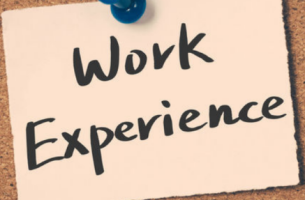
Wayne Brophy
Nov 13, 2020
Peak Planning: Do You Need To Prepare For The Never-Ending Peak?
Peak has been non stop since March 2020, and currently shows no signs of slowing down. This never-ending demand has been a constant topic of conversation amongst our clients, with many adjusting their recruitment strategy to ensure they can meet the surge. It's led to continuous Peak planning. It also begs the question whether this is the ‘new normal’, or a temporary blip that will end once the pandemic does. What we do know is that relentless Peak is still here for a while yet. That’s why we gathered insights from various businesses to understand how they’re dealing with it, along with their thoughts on whether the traditional Peak calendar is no more.
eCommerce
A switch to – or extension of – eCommerce was seen in many businesses due to pandemic Peak. For example, Furniture Village brought in a digital queuing system, which was incredibly successful. It had an 80% conversion rate, something they’d never managed to achieve in-store. To meet an influx of online orders, businesses like Sainsbury’s and Poundland transformed some of their brick-and-mortar stores into temporary warehouses. Many of the organisations we interviewed are looking at the opportunities available in eCommerce too – for instance, one leader carried out a small pilot for last-mile delivery to private addresses.
Technology
Technology was core for many during pandemic Peak. Superdrug and Gap employed robotics, and Indetix opted to invest €2.7 billion over three years in digitalisation. This will allow them to integrate online and physical stores, and scale up their online business. This focus on innovation is continuing too; pilots are proving popular during this time. For example, one business we spoke to is using technology to meet their sustainability goals by introducing solar vehicles with tail lifts. Some are exploring very advanced technologies, like automated warehouse sweepers and scrubbers, to reduce downtime. Then there is the use of technology to keep staff safe - electronic proof of delivery and automated storage retrieval systems are playing a key role.
Adaptation
Flexibility has been necessary in order to meet the varying demands that have arisen as a result of the pandemic Peak. For instance, Holland & Barrett chose to use a pop-up facility as flexible warehouse space. One business adapted by not actually pausing operations or furloughing their staff. Instead, they invested in their team so they can manage Peak effectively, and ensure they'd be able to retain their new clients. Others have had to reassess their headcount numbers so they can respond to demand whilst ensuring good social distancing practice. There's a need to remain agile in preparation for future events too - like Brexit. One leader we spoke to has to manage their capacity with considerable flexibility and precision as customers look to stockpile some products at their warehouses.
Is the traditional Peak calendar dead?
As well as looking at how they tackled this 'pandemic Peak', we asked business leaders whether they think we'll see a return to traditional Peak. There were varying responses. Some think that we’ll go back to normal once COVID-19 is brought under control, and so there will no longer be a need for constant Peak planning. Others think we could have multiple Peaks. While we cannot be certain what lies ahead, one thing is for sure: we must prepare for all eventualities and ensure we have a Peak plan in place. You'll need to be quick to react to specific circumstances at hand, particularly when it comes to your resources and workforce. Our whitepaper explores how leaders in logistics and supply chain have reacted to the events of 2020 and are planning for 2021. Download your copy here to gain more insights into what your peers are doing.
Whilst we can't be certain what lies ahead, we can do our best to be as flexible and dynamic as possible. By learning from agile businesses, we can successfully tackle the unexpected.
Let's respond with agility.
Get in touch today on 0333 121 3345


